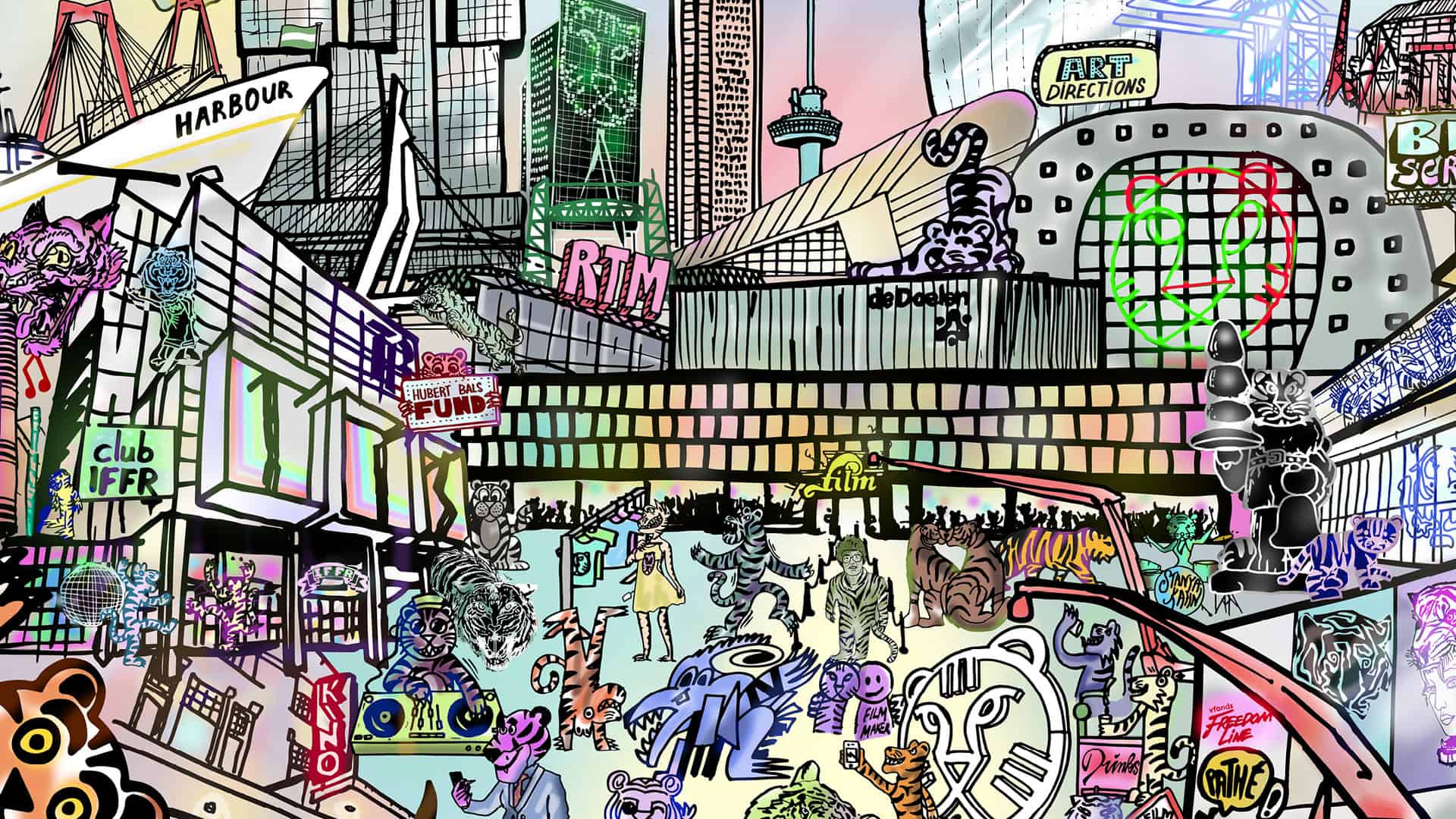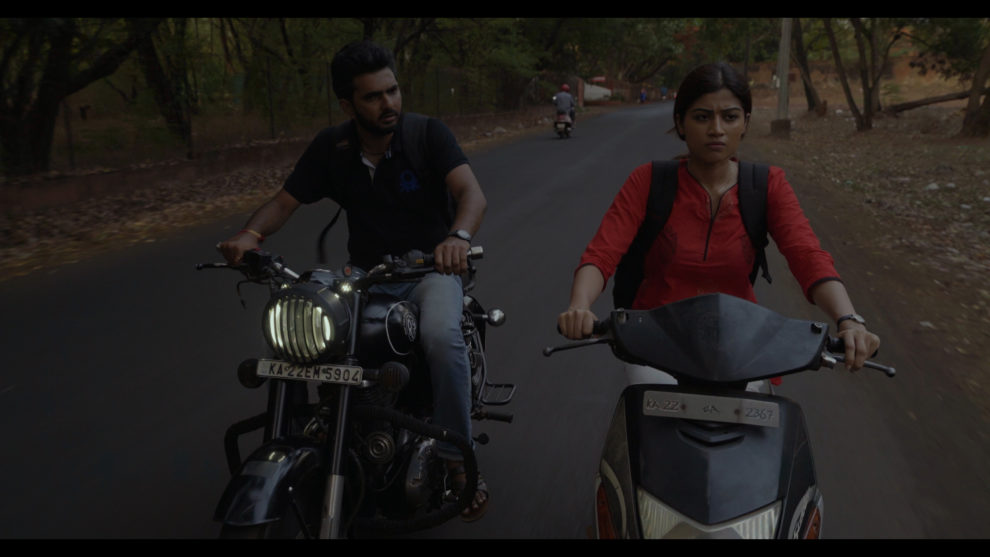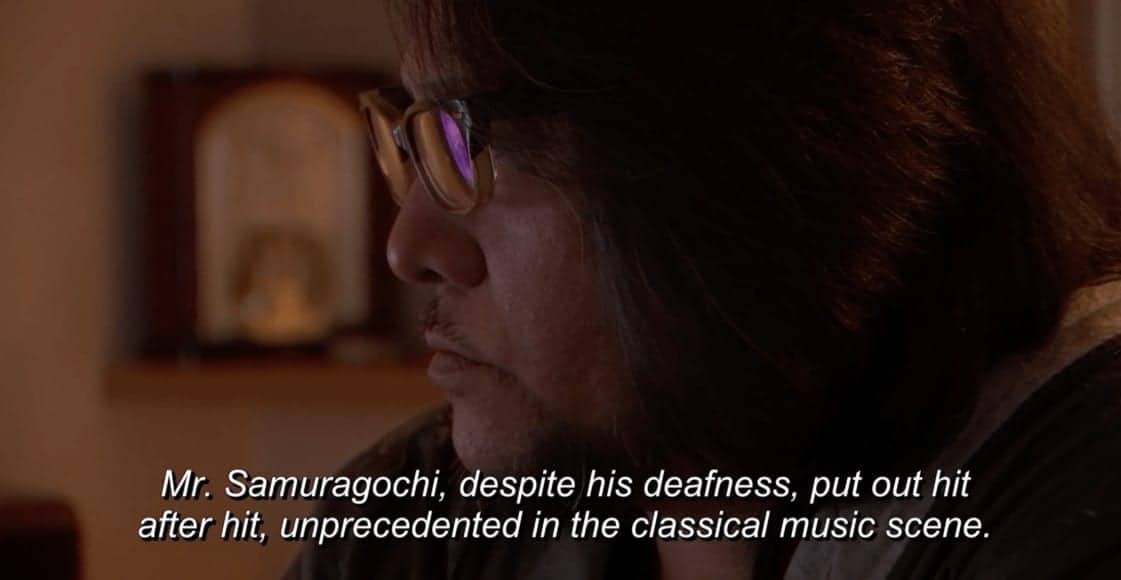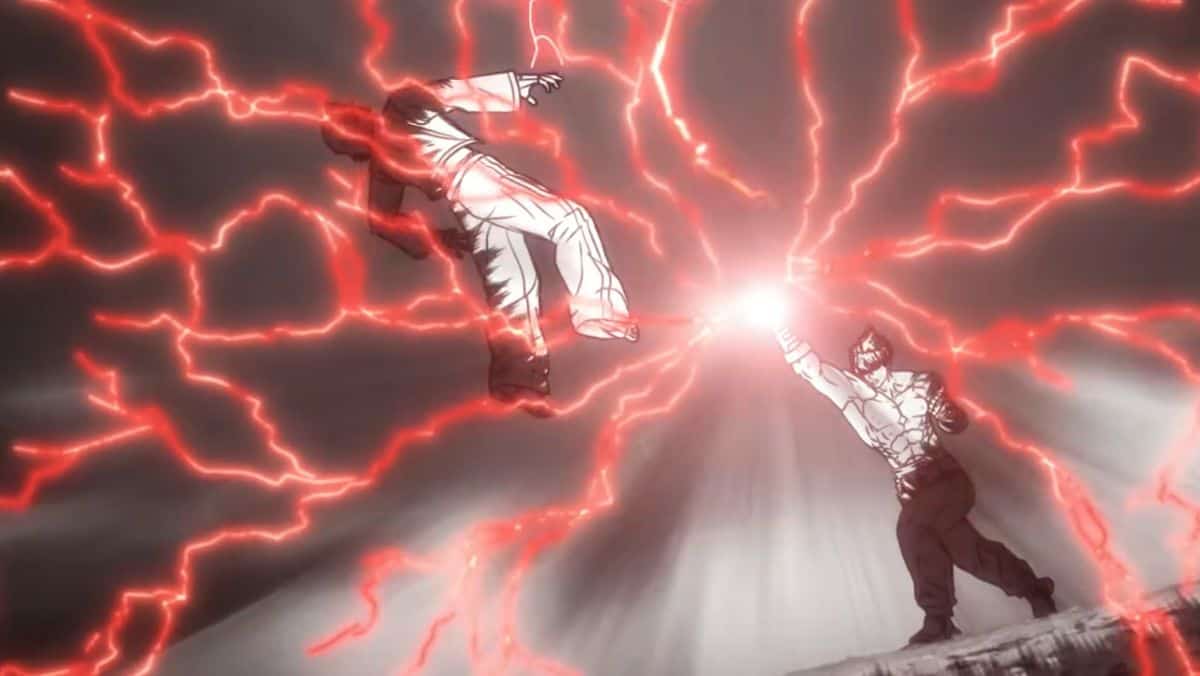The concept of how people become radicalized, which usually ends up with them joining the ultra-right is a topic of international interest, particularly nowadays, with the particular political space having given rise to a number of leaders throughout the world. Harshad Nalawade, in his feature debut, examines this particular topic based on his own experiences of living as part of a linguistically marginalized community of the disputed small town of Belgaum in Karnataka, India, where the Marathi and the Kannadiga seem to be entangled in a constant feud.
Follower is screening at International Film Festival Rotterdam

Raghu, a member of the Marathi population in Belgaum, works as a journalist for a media outlet that seems to shamelessly promote a new Marathi leader who tries to gain votes by polarizing the members of the particular ethnicity with the Kannadigas living there. Raghu believes in his cause, to the point that the fakeness of the news of his media and his meager pay do not phase him at all. Furthermore, his mother pressures him to get married, trying to arrange a wife for him by sharing his biodata and even lying for his income, to the frustration of the young man. Raghu has a female friend, Pari, whom he seems to like, while another acquaintance, Sachin, seems to have been an old friend that disappeared from his life after a fight. Furthermore, Sachin is a journalist from an upper class family, and a Kannadigas who essentially reports the opposite side from Raghu. The protagonist is in a constant state of anger for the first part of the movie, but the second half, which moves into the past of all the protagonists, reveals how he ended up being like that.
Through Raghu, and his overall situation, Harshad Nalawade gives a rather intricate but also quite realistic answer on how followers of the radical right end up in the particular space. As we see throughout the two axes of the movie, Raghu is passed over for promotion, with his father insisting that it is because he is Marathi that this thing happens. Then he is stuck taking care of a shop, a job he despises completely, while his mother, who constantly bugs him to get married, seems to favor his brother who has left for the US, essentially distancing himself from the problems Raghu faces, of which poverty seems to be a central one. At the same time, Pari is stuck in a relationship with an abusive man, which weighs heavily on the protagonist who obviously has feelings for her, while his rich, privileged friend, Sachin, always pins him down for his lack of political thought and inability to resist.
Apart from this general setting, a number of other, more specific events, make things even worse. The attitude of his colleagues, the rise of the rent, a kiss, his brother's involvement, essentially make Raghu realize, feel if you prefer, as a loser. This mentality is what eventually leads him to fall under the spell of the radical Marathi, whose doctrine essentially states to Raghu and others like him, exactly what they want to hear: that what is happening to them is not their fault, but of the Kannadiga population who exploit them, despite the fact that the Marathi was first there.
Expectedly, this logicalization echoes well in the ears of Raghu, who feels that his life is hopeless on all aspects, without any way out, a mentality that essentially makes him constantly angry, lashing out at everyone around him. At the same time, and although Nalawade does not present him only as just a victim of his circumstances, he also shows that the environment he lives in makes it quite hard to avoid feeling as he eventually feels, as the scene inside his shop, when both Marathi and Kannadiga come to threaten him, eloquently highlights. Lastly, the concept of fake news, how they work and the consequences they can have is also portrayed here, concluding the rather rich context.
In terms of direction, the “trick” of showing Raghu's behavior in the first part, and the reasons behind it in the second, through flashbacks, works quite well for the movie, as it retains interest and a sense of mystery about what is happening throughout. In that regard, Maulik Sharma's editing, which also induces the movie with a very fitting, relatively fast pace, emerges as one of its best traits. The cinematography results in two different approaches, with a number of scenes appearing documentary-like, while the darkness and lack of light that seems to dominate most scenes mirrors the psychology of the protagonist and the nature of the events depicted accurately.
Raghu Prakash gives an excellent performance as Raghu, with the way he presents his frustration and the transformation he undergoes being among the best assets of the movie. Donna Munshi as Pari is also convincing as the girl finding herself in impossible conditions due to the men around her, while Harshad Nalawade himself as Sachin presents a character that is as annoying as Raghu, in the same convincing fashion.
“Follower” is an excellent movie that works both as a drama about a lost young man, and as a pointed sociopolitical commentary.
















